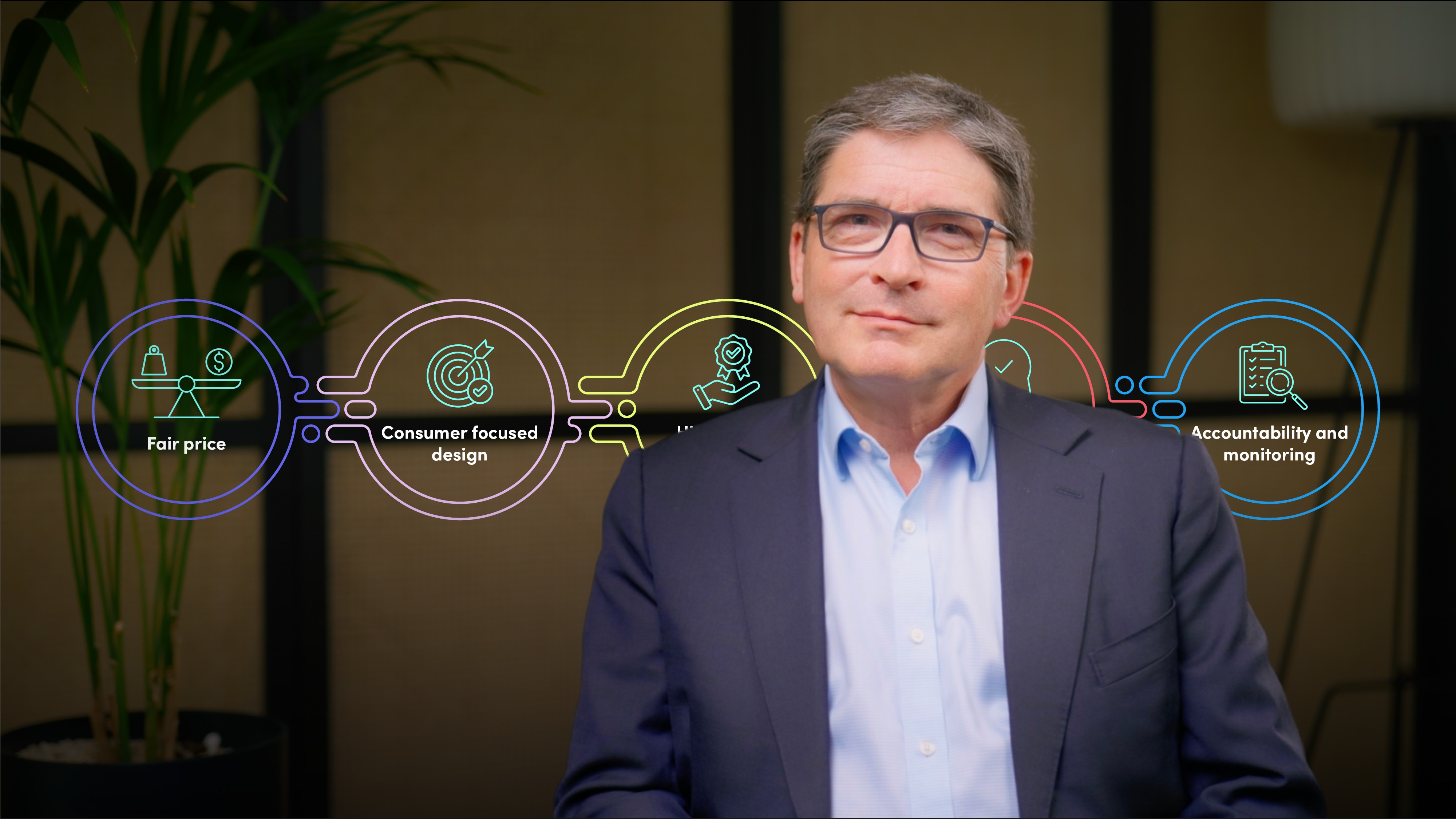
Decoding the FCA’s Consumer Duty Requirements

Roger Miles
25 years: Behavoural science & conduct
In this video, Roger introduces the UK Financial Conduct Authority’s (FCA) Consumer Duty requirements and explains how they build on the earlier Treating Customers Fairly (TCF) principles. He also outlines how conduct regulation has evolved, what the FCA now expects from regulated firms, and how behavioural science shapes today’s rules.
In this video, Roger introduces the UK Financial Conduct Authority’s (FCA) Consumer Duty requirements and explains how they build on the earlier Treating Customers Fairly (TCF) principles. He also outlines how conduct regulation has evolved, what the FCA now expects from regulated firms, and how behavioural science shapes today’s rules.

Decoding the FCA’s Consumer Duty Requirements
10 mins 24 secs
Key learning objectives:
Understand how the FCA’s Consumer Duty builds upon the principles of Treating Customers Fairly (TCF)
Identify the five key areas firms must address to meet Consumer Duty standards
Outline how behavioural science influences the FCA’s approach to conduct regulation
Identify practical ways to demonstrate good conduct and customer-centric behaviour in everyday work
Overview:
- Fair price and value
- Product and service suitability
- Customer service
- Clear communications
- Governance and monitoring
- Bullying, exclusion and harassment in the workplace
- Giving misleading or dishonest answers to the regulator
- Greenwashing, or exaggerating ESG credentials
- Acting with disregard for customer outcomes

Roger Miles
There are no available Videos from "Roger Miles"

